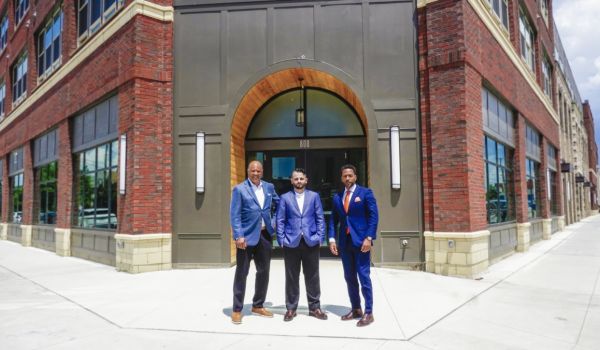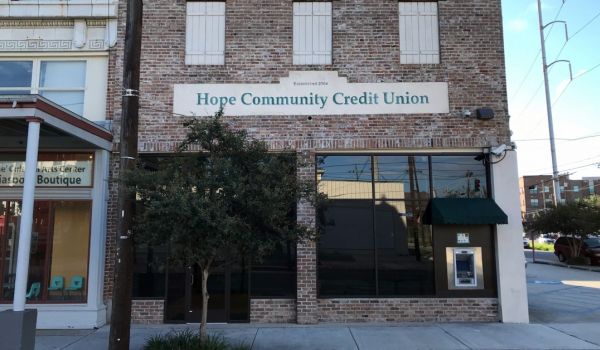Fed Launches Pilot Program Exploring Climate Risk In Banking
Just as cities plan for climate resiliency, banks are now being asked to do the same — at least in a hypothetical sense. The Federal Reserve Board announced Sept. 27 that it would begin a climate risk assessment pilot with the nation’s six largest banks: Bank of America, Citigroup, Goldman Sachs, JPMorgan Chase, Morgan Stanley and Wells Fargo.
A bit like a stress test, banks will be given hypothetical climate-related scenarios and analyze the impact of the scenarios on specific portfolios and business strategies. The experiment will run through the entirety of 2023. At the end of the exploration, the New York Times reports, the Federal Reserve will release “high-level insights” rather than publishing data by individual firms.
Biden To Pardon Minor Cannabis Possession, Urges Governors To Follow
President Joe Biden revisited a campaign promise by announcing that he will take the first steps toward pardoning all prior federal offenses for minor possession of cannabis.
“Criminal records for marijuana possession have also imposed needless barriers to employment, housing, and educational opportunities,” Biden said. “And while White and Black and brown people use marijuana at similar rates, Black and brown people have been arrested, prosecuted, and convicted at disproportionate rates.”
While that may be good news for what he states as tens of thousands, Biden still urges governors to follow suit on state-level offenses of a similar nature. In 2019, Next City outlined the role of states in the battle of legalization and its disproportionate effect on Black and Brown people.
Gender Inequity Hurts Women And Their Children – Physically
University of Michigan researchers studying gender inequity in low- and middle-income countries have found a strong link between countries with higher gender inequity, women’s economic insecurity – and caregivers’ severe physical abuse of their children.
The study, published in the International Journal of Environmental Research and Public Health on Sept. 21, found that higher levels of gender inequality in a country (evaluated based on factors including labor force participation, educational attainment and maternal mortality) was correlated with higher probabilities of physical abuse.
The bottom line: Gender inequity begets economic insecurity thereby increasing the likelihood of violence. While much of the violence is linked to cultural aspects, researchers suggest that policymakers can start by eliminating legislative language that promotes gender inequity.
“Eliminating gender discriminatory legislation and practices would empower women economically and politically, thereby strengthening their caregiving roles and promote nurturing, non-physical child rearing practices,” the researchers conclude. “Furthermore, advancing gender equality would reduce gender-based violence and exploitation in the family context that are grounded in discriminatory social norms. The empowerment of women would potentially prevent the spillover of violence against children.”
The Newest Treasury Advisory Committee Takes On Racial Equity
There’s a new urgency to the idea of racial equity’s connection with economic prosperity. This week, the U.S. Treasury Department welcomed its inaugural Racial Equity Advisory Committee.
Committee members, who will each serve two-year terms, will aid and offer recommendations to Treasury officials to help address major economic disparities found in communities of color. The committee will review hundreds of current economic policies that have likely contributed to current economic inequities.
Topics the committee will address include financial inclusion, access to capital, housing stability, federal supplier diversity and economic development. The ultimate goal: Finding a way to institutionalize racially equitable economic development nationwide.

Marielle Argueza is Next City’s INN/Columbia Journalism School intern for Summer-Fall 2022. She’s a journalist based in New York City with more than ten years of experience. Her beats have included education, immigration, labor, criminal justice and climate. Her work in K-12 education is award-winning and she was recognized multiple times by the California News Publishers Association. She is a recent graduate of Columbia Journalism School, where she was Toni Stabile Investigative Fellow. During her time earning her master’s degree, she drew from her extensive knowledge of local journalism to report stories on the city, state and national level. Her work includes a story on Harlem’s last assisted-living facility for people living with HIV/AIDS; a profile on New York State’s first Farmers Union; and a database of deaths within the Milwaukee County Jail. She is also a recipient of other fellowships and scholarships from several notable organizations within the news industry including the Asian American Journalists Association (AAJA), Association of Alternative Newsmedia (AAN), ProPublica, and the Journalism and Women Symposium (JAWS).
















